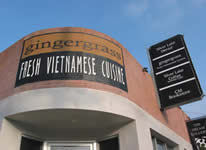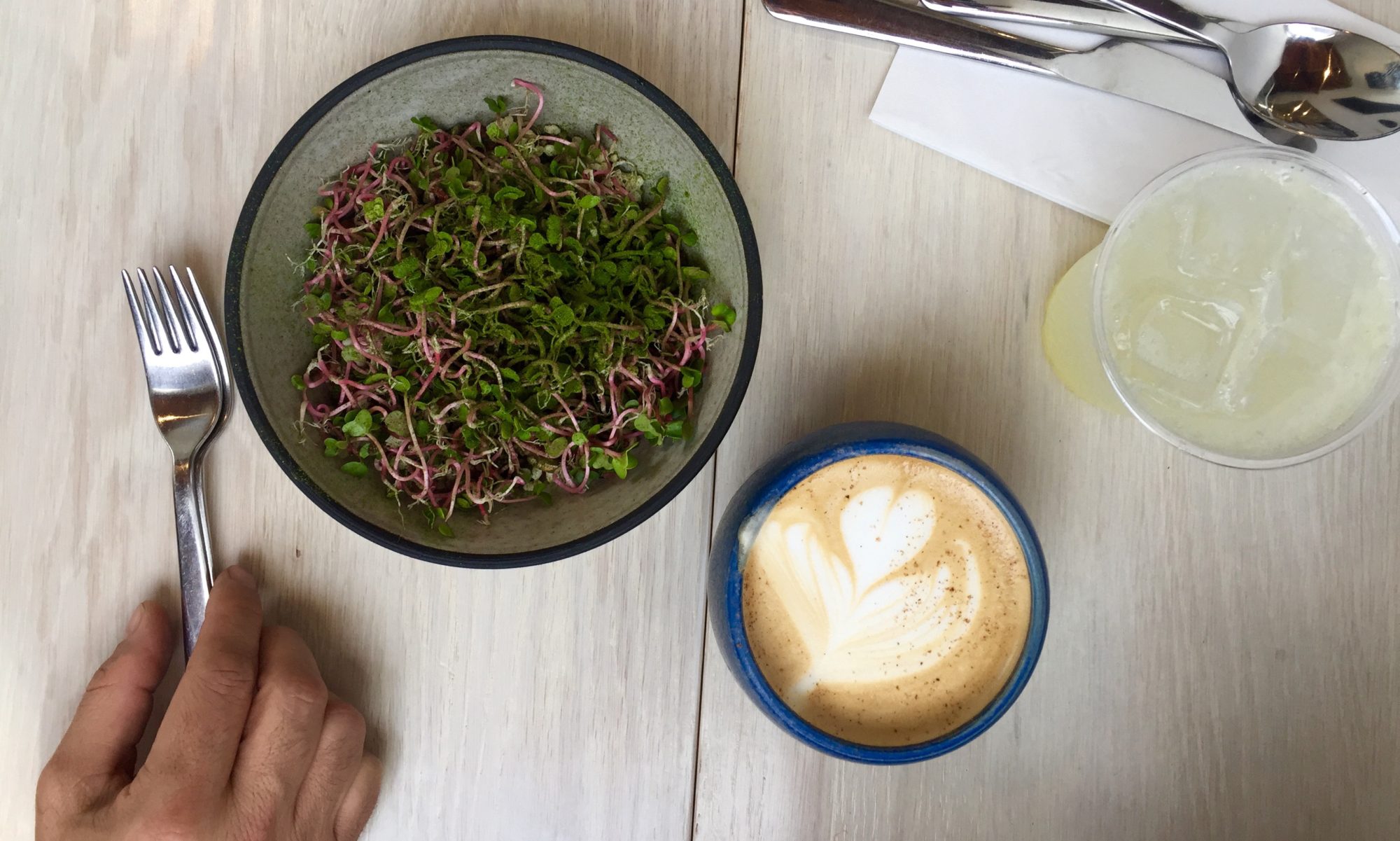I grew up in a small, predominantly white town in Massachusetts where fear of “outsiders” was subtly encouraged and big city living was openly scorned. I spent my formative years avoiding anything unfamiliar, for fear it might turn me into some kind of a monster. It took a college education in the progressive town of Amherst, a semester in France and interacting with a diverse population of students to show me how limited my world view had become. Armed with a journalism degree and a hunger for knowledge, I vowed to explore the world beyond Massachusetts and discover all that I had missed.
The moving to LA part took me a while, but when I finally got up the courage to move west, I made a grand step in the right direction to broadening my perspective. I threw caution to the wind a handful of years later, and moved to New York City for a summer to work as a restaurant consultant.
While overseeing the opening of a LA based restaurant, I sub-letted an apartment in a six-floor walk up a few blocks north of the emerging culinary scene of the Lower East Side. When I wasn’t knee deep in construction and restaurant permiting, I explored neighborhoods on foot, sampled food I had never tasted before and realized that the song lyric “New York, a city that never sleeps” was actually true. And, unlike what I had been told as a youngster, New Yorkers weren’t all that rude (no more than Boston folk) and all the men lurking on street corners didn’t try to kidnap me or demand I take drugs.
But then, there was this one time I did end up trying something in the big city I got utterly addicted to…
Don’t worry, dear reader. I never do drugs. That ominous thing I’m referring to is Bánh mì.
Bánh mì, for the uninitiated small-town foodie, is a spicy, Vietnamese meat sandwich filled with pickled carrots, cilantro, daikon, hot peppers and onion that represents the blending of two cultures: French and Indonesian. Back in the day, the Vietnamese adopted the crispy baguette (Pain de mie) of the imperialist French colonists and made a sandwich filled with fresh ingredients all their own. Say Pan di mie with a thick Vietnamese accent and you quickly understand where the name came from.
Like any good street drug, Bánh mì is priced to sell. Costing between $2-$5 a pop, the contrasting flavors of salty meat (pate or marinated pork and chicken), spicy peppers, crunchy vegetables and crispy bread make Bánh mì’s unusual flavors completely addictive.
I’ll always remember my first taste. It was a rainy summer’s day and the chef went on a sandwich run to Nicky’s Vietnamese Sandwiches. I watched him carefully unwrap the paper around what looked like a pretty straight forward meat and vegetable submarine sandwich, and how his eyes rolled back as he took mouthfuls of the thing.
“What are you eating?” I innocently asked.
The chef stopped chewing and eyed me with surprise. “You’ve never had Bánh mì?” He swore under his breath and shoved the sandwich in my face. “Eat it. It’s gonna change your F*k’n life.”
My first taste of Bánh mì was tentative. I couldn’t wrap my mind around the possibility that this simple sandwich could possibly be as good as he said it would be. I took another bite. And then, much to his surprise (and mine), I became territorial. I stepped back, got out of Chef’s reach, and in just a few short delirious moments of spice, salty meat, and buttery baguette crunch, I had polished off the entire thing. Never in my life had I tasted anything like it.
I was hooked.
Just an hour later, after attending to the needs of my restaurant construction crew, I hauled ass to the nearest Bánh mì stall to buy the first of many Vietnamese sandwiches.
It’s a slippery slope trying to find the best Bánh mì. You get lost. You make mistakes. You add too much chili spice and break into a cold sweat. You get so strung out on spicy meat sandwiches you start saying “bang mi” to the counter person and they threaten to throw you out for talking dirty to them.
STREET LEGAL
Being the addict that I am, I am always on the lookout for the best street-legal Bánh mì out there. Unfortunate, there aren’t a lot of Vietnamese sandwich shops in the Hollywood area. The best and most convenient place I’ve found is:
Gingergrass, a modern take on Vietnamese cuisine, conveniently located across the street from my favorite wine shop in town, Silverlake Wine.
Because it requires a bit of a drive from where we live, my husband and I make an afternoon of it and on Sundays we drive east for the delicious pork Bánh mì with crispy Vietnamese rice crackers, the sautéed baby bok choy and the appetizer special of the day. After filling our bellies we roll across the street to our favorite wine shop, Silverlake wine, and buy amazing wines from Randy and George.
Thanks to a recent comment on my blog by culinary couple and food bloggers, White on Rice, I discovered I was not alone in Southern California in my Bánh mì obsession. White on Rice has a website called Battle of the Banh mi. BOBM is dedicated to finding the best Bánh mì in every city across America. Readers are encouraged to post their favorite Bánh mì restaurants and the site offers suggestions on how to make the addictive Vietnamese sandwich and where to buy it.
It’s true what my small town friends said. Living in the big city really can turn you into some kind of addict.
